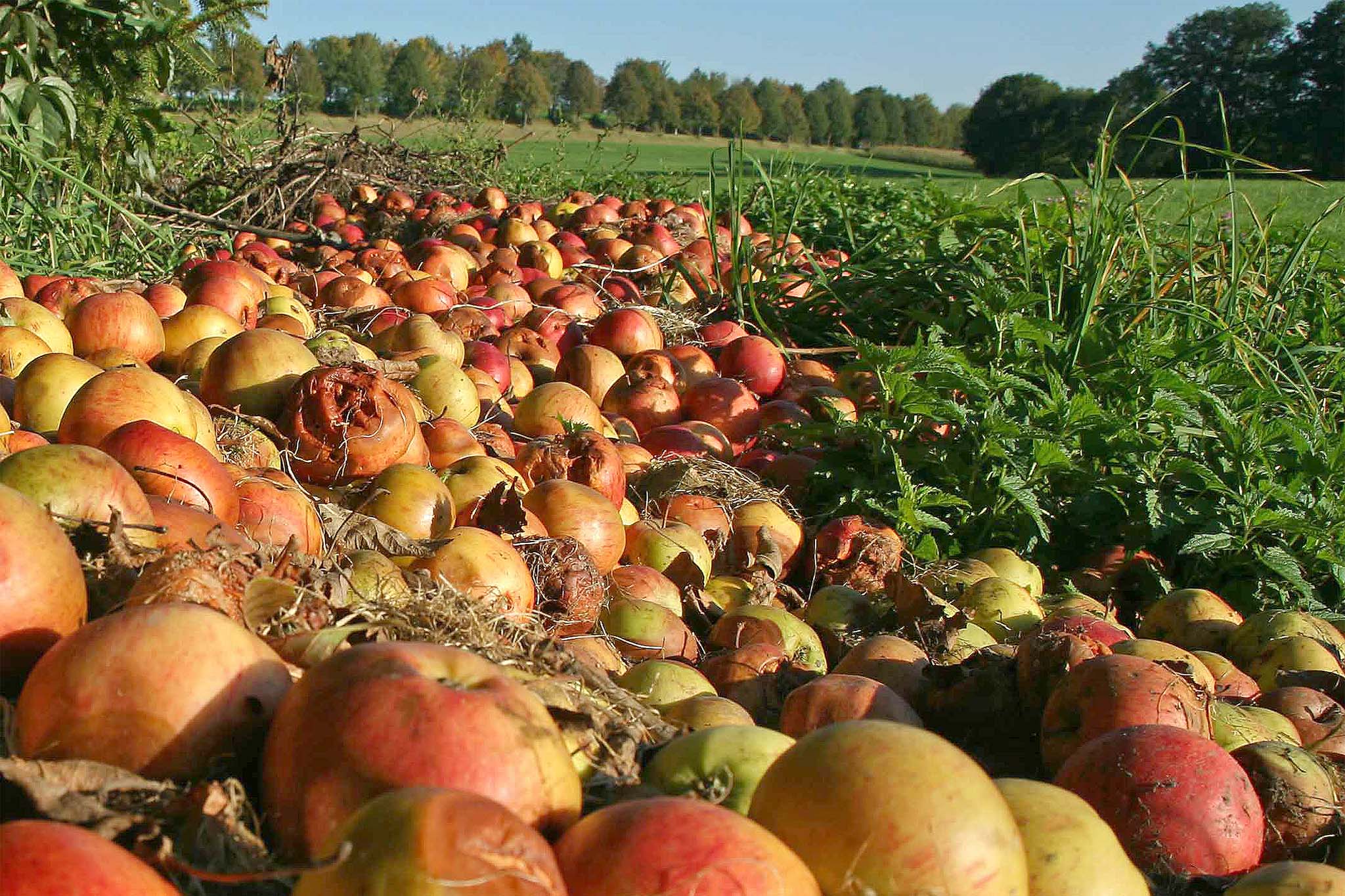
Waste Not,
Want Yes
Social enterprises – empowered by financial institutions – are pushing innovative solutions for zero food waste.
Covid-19 is transforming our world, but it also provides time to reflect. There is renewed spotlight on the United Nations Sustainable Development Goals (SDGs), reviving and reenergizing crucial questions. How can we rebuild towards a cleaner, greener future? Can we restructure a global economy around eliminating world hunger? The issues of the environment and famine touch on several of the SDGs. Though not a part of the SDGs, pursuing zero food waste will go a long way in achieving these goals by 2030.

A third of the world’s food is lost or wasted, and yet one in nine people go hungry. The environmental impact compounds this problem. If food waste were a country, the disposed supply would emit almost a tenth of global greenhouse gas emissions, putting this “country” behind only the United States and China. India provides a poignant case study in understanding this imbalance: The country produces more food than it consumes, and yet in 2019, it ranked 102 out of 117 countries on the Global Hunger Index. However, this is not a result of trade imbalances. According to the United Nations (UN), as much as 40% of food in India is wasted before it reaches the consumer.
According to Shee Tse Koon, Singapore Country Head of DBS, a financial institution that has turned its attention to tackling food waste, the issue is “exacerbated by the Covid-19 pandemic.” Borders remain closed, supply chains are disrupted, and demand has faltered. Farmers are struggling to harvest, sell, transport, and store their produce.
Solutions by Social Enterprises
Food waste is a complex, multi-faceted problem that calls for multi-faceted solutions.
As agile and innovative businesses, social enterprises together with local community partners are well-positioned to help solve the myriad inefficiencies that result in food waste. Recognizing this, the DBS Foundation launched a new category of grants for social enterprises that are working towards zero food waste. These social enterprises are working along the supply chain solve the food waste issues from farm to table.

Reducing Food Waste along the Supply Chain
Long before Covid-19 was declared a pandemic, many governments closed national, provincial, and state borders across Asia. As the initial epicenter of the outbreak, China’s Hubei province was the first area to go into lockdown on January 23rd, 2020, just two days before Chinese New Year. This was terrible news for the province’s tens of thousands of blood orange farmers, who harvest between December and March.

With Hubei province locked down and unable to export, 4500 metric tons of oranges were left unsold in Enshi city. But even modest actions can lead to scalable results. Through the Chinese social enterprise Yi She, DBS purchased some of the surplus produce for its staff, distributing them across their six branches in China. The fruit was so well-received that the staff encouraged others to also enjoy the bounty. They began promoting Yi She’s BUY4FOOD WeChat platform to encourage direct ordering from the farmers.

In India, farmers face similar problems. While Covid-19 disrupts supply chains, farmers lack the resources to store their yield. Much like Yi She, Indian social enterprise S4S Technologies is able to reduce food loss at the very beginning of the supply chain. “Our solar-powered technologies are helping to process food right at the farm gate,” says Vaibhav Tidke, the company’s CEO. “This helps cut down on losses and saves on logistics costs.”
S4S Technologies’ solar dryers dehydrate perishable fruits and vegetables, increasing their shelf life from a few days or weeks to up to a year – without using chemicals or preservatives. Instead of seeing their unsold goods perish, farmers can dehydrate their harvest and wait until demand picks up. Since the dryers run on solar power, their carbon footprint is small, and since they do not need an electricity supply, maintenance is minimal. S4S Technologies was given a grant by the DBS Foundation in 2019 to expand their product offerings to other parts of India to scale their impact.

By helping agri-enterprises build sustainable businesses, this partnership can help reduce food wastage and ensure better prices and markets for farmers.
Anil Kumar SG, Samunnati Finance’s founder, and CEO
Post-harvesting processing can go a long way in tackling food waste, in some cases reducing it from 30% to less than 5%. In the Indian states of Tamil Nadu, Gujarat, and Maharashtra, rice and wheat farmers struggled to shift their perishable produce. DBS and Samunnati Finance, a finance company specializing in agri-finance, were able to co-lend to these farmers, and food and agriculture entities in 12 other Indian states. Empowered farmers with the ability to invest can weather storms like Covid-19 better.
Managing Surplus Food and Recycling Food Waste
As innovations emerge to address waste during the supply chain, there are practical solutions that reduce waste at the consumer end. In Taiwan, Do You A Flavor, a social enterprise that works with people living and working on the streets, demonstrates a model for tackling food waste and feeding the hungry. They call on the public to donate food near its expiration date, gather unused ingredients from restaurants, and collect unsold fruit and vegetables from markets. Then they invite volunteers to cook the food and distribute it to people living on the streets. Similarly, in Hong Kong, Food Angel collects and cooks surplus ingredients, but they serve hot meals to underprivileged communities.

Surplus foods can also be recycled into other by-products – even if they are no longer fit for consumption. In Singapore, Koufu has pioneered a model that reduces food waste in food courts. They’ve successfully installed food digesters at educational institution Singapore Polytechnic that convert waste into by-products like fertilizer. The digesters also keep the air smelling fresh and reduce the food courts’ carbon footprint. Choo Teck Chuan, Koufu’s chief operating officer, explains that the food digester even helps stall holders understand how much food is being discarded, enabling them to “work towards adjusting their food portioning.”

In China, MotionECO is looking to scale up their collection and conversion of used cooking oil into biodiesel since receiving a grant from the DBS Foundation in 2019. This biodiesel can be combined with regular diesel and used in different kinds of engines to reduce emissions. “Biodiesel made from waste cooking oil can reduce up to 90% of greenhouse gas emissions per unit compared with regular diesel,” says Shutong Liu, founder of MotionECO. That this process prevents the oil being illegally reused to cook food is an additional benefit, he adds.
With innovative solutions that target the supply chain and manage surplus food, social enterprises, empowered by financial institutions, can “make an impact in reducing food waste [and] solving food insecurity, while conserving resources,” believes Shee Tse Koon.
Together, we can build a more sustainable future for the generations to come.
Shee Tse Koon, Singapore Country Head of DBS
READ MORE





